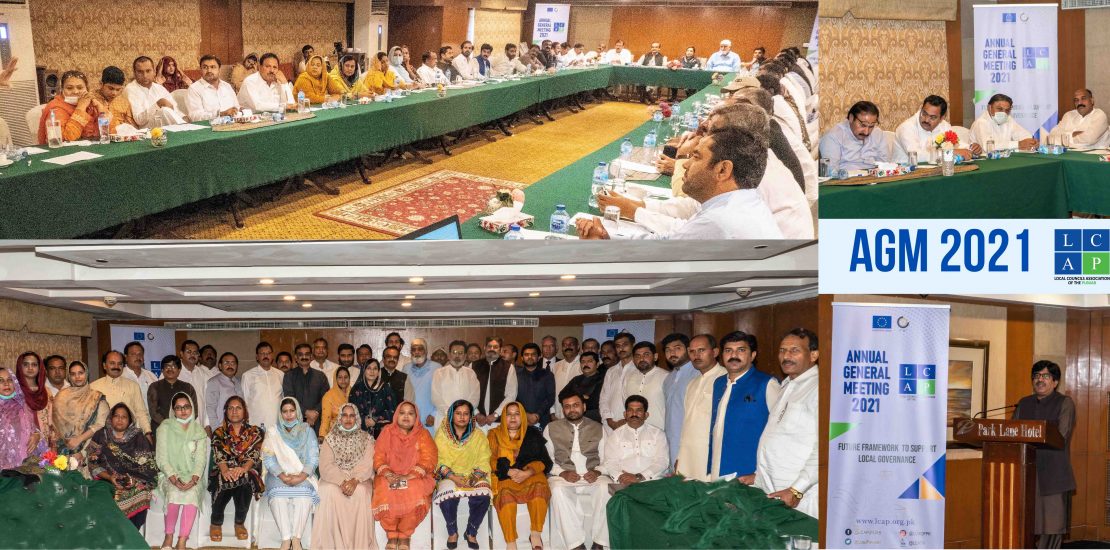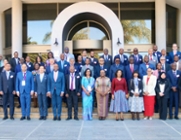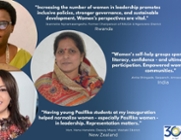All points Pakistan

09 August 2022
Local democracy in Pakistan got a boost with CLGF and the Local Councils Association of the Punjab (LCAP) successfully concluding an important, EU funded project - Strengthening the Associations of Local Government and their members for Enhanced Governance and Effective Development Outcomes in Pakistan - in January 2022.
The five-year, €1.7million project worked to strengthen the local councils associations in the four provinces of Pakistan (LCAB, LCAKP, LCAP and LCAS) as well as their umbrella national organisation the Association for Development of Local Governance (ADLG).
The project accompanied the associations through a preliminary institutionalisation process supporting the setup of offices, the development of strategic plans and the holding of AGMs and other key member meetings. It operated through a politically tumultuous time in Pakistan with support for local government initially in a relatively strong position, with elected local government in place in all four provinces. However, this deteriorated over the course of 2019 with the ending of local government terms in both Baluchistan and KP province, and the dissolution of local government in the Punjab. This was further exacerbated with COVID-19 hitting the country in March of 2020 and subsequent waves of the pandemic making the holding of meetings difficult and prolonging the lack of local elections. Within this challenging framework, the flexible partnership at the heart of the project allowed CLGF and its LCA partners to target activities both to build capacity of existing and former councillors, develop and implement advocacy campaigns, and build awareness of the role and importance of local government.
Ensuring the voice of local government
The project supported the LCAs to campaign for the need for local elections and the important role of local government. A first national conference took place in 2019 around the theme of - Local Government: A partner in national development in Pakistan - which allowed local government to bring its demands for a more enabling local government system to policy makers. This process was continued at provincial level where the LCAs worked actively with provincial government to review and revise the local government acts achieving important changes in both Sindh and Punjab, to further enable and empower local government.
Over the course of the pandemic, the LCAs built awareness of the role of local government as a first responder and highlighted the actions of individual councils to address health and sanitation, as well as economic and gender-based impacts of the pandemic on their communities.
A second National Conference took place in September 2022 - Local Democracy: Moving Forward - working to build cross-party consensus to holding local government elections and to reforming the local government system to provide it more constitutional support. The ADLG developed and is implementing a campaign around constitutional reform.
Building capacity for inclusive governance
In the final year of the project, with local elections upcoming the LCAs worked to deliver province-wide awareness-raising sessions on the role of local government and becoming a councillor. These were delivered in 128 Districts with over 4,000 prospective councillors.
The LCAs also worked to strengthen the voice of traditionally marginalised groups within their bodies, putting in place Women Development Committees and Minority Development Committees, at both provincial and national level. These committees allow women and minority members to come together to share experience and develop campaigns and strategies to better support their decision-making impact both within the LCAs and in their local councils.
In addition to building the capacity of the LCAs, the project also offered an opportunity for the LCAs to work with selected member council to pilot and roll out the territorial approach to local development (TALD) as a means of demonstrating the benefits of a more cooperative and inclusive approach to local planning and development. Although there were some challenges, mainly linked to the term of local councils being ended and elections not being called, the model was tested through eight successful projects which brought local stakeholders together to assess key challenges and needs, agree on a priority project and deliver that project. Acting at the local level in KP, Sindh and Punjab, the pilots delivered water stand pipes, drainage systems, playing fields and community centres, and demonstrated how collaborative cooperative decision making can deliver for communities at the local level. Training in TALD was delivered to all the associations and a toolkit is in place to facilitate TALD in the future.
Creating a runway to land new projects
Ensuring financial sustainability was also an important priority of the project. The project built the financial and management capacity of the associations and they have been successful in securing other projects such as work on sustainable energy with GIZ or localising the SDGs through EU support which will allow them to continue to support their members going forward.
The LCAs are now representative organisations bringing together local government in each of the four provinces to work together to ensure a coordinated voice for local government in lobbying and advocacy; providing a platform for exchange of good practice and learning; delivering and enabling relevant capacity building and providing knowledge materials. While the project has ended, CLGF is actively looking for new opportunities to continue to work with its members in Pakistan and to further entrench good local governance in Pakistan.
CLGF Programme Manager, Ms Claire Frost said: "It is very gratifying to see how the hard work of so many people has contributed to local democracy in Pakistan. From practical help with the creation of structures to give local government a greater voice in decision-making; and piloting the TALD system, which gives communities more involvement in development issues; to advocacy issues, such as encouraging the participation of women; this not only changes the immediate situation, but lays the foundations for more inclusiveness in the way our communities are managed in the future. We are also very grateful to the European Union for their important, financial support."
Back to News





